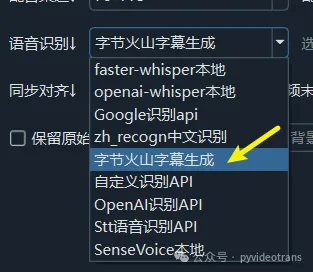"Current IP is restricted, please use a proxy." "Voiceover error count exceeds 1/3."
These errors typically occur during the voiceover stage when using the "edgeTTS" voiceover channel. edgeTTS is Microsoft's TTS service API used for the Edge browser's read-aloud function. While it's generally free, recent updates seem to have introduced rate limiting. A large number of requests from the same IP address within a short period can trigger a 403 block, leading to these errors.


How to fix it?
First: Check for the latest patch. If available, download and install it to see if it resolves the issue.
Download updates from: https://pyvideotrans.com/downpackage
Second: If you understand what a proxy/VPN is, use one. Enter the HTTP proxy address in the "Network Proxy" text box.
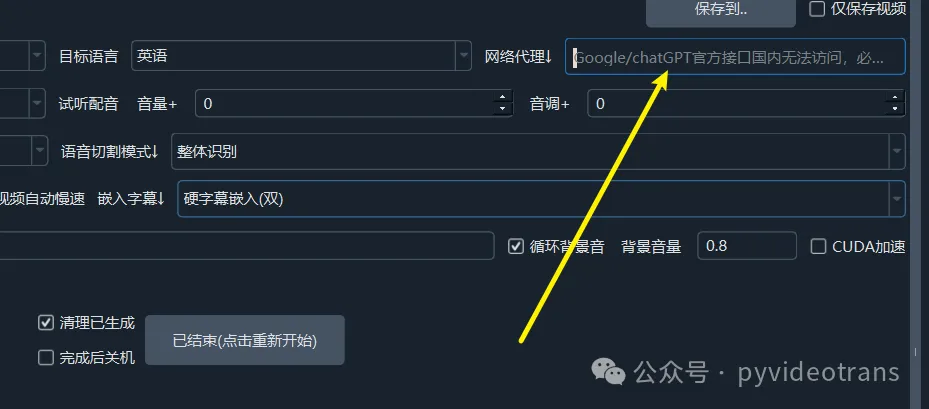
Third: As shown below, click "Voiceover Channel," and in the pop-up window, change "Concurrency" to 1 and "Pause" to 5. Reducing the voiceover speed can help minimize errors.
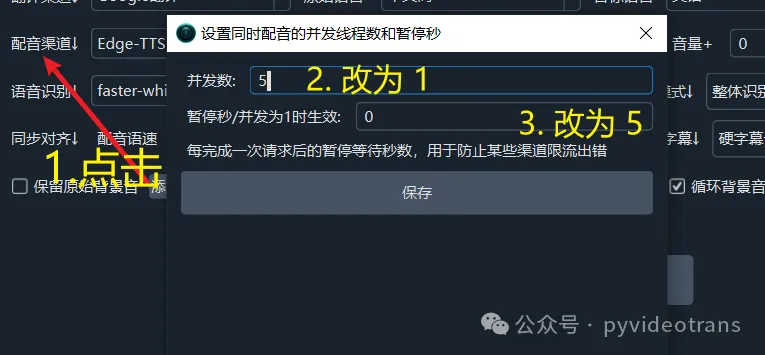
Fourth: If the above methods don't work, try switching to another voiceover channel.
For example, free voiceover services include "GPT-SoVITS," "ChatTTS," "F5-TTS," and "CosyVoice." Deploy the corresponding project locally. Tutorial links are available in the settings box. 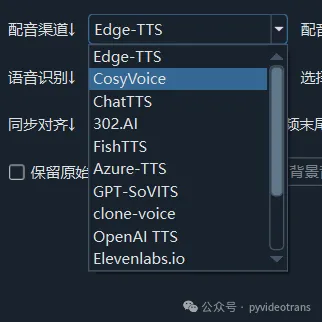
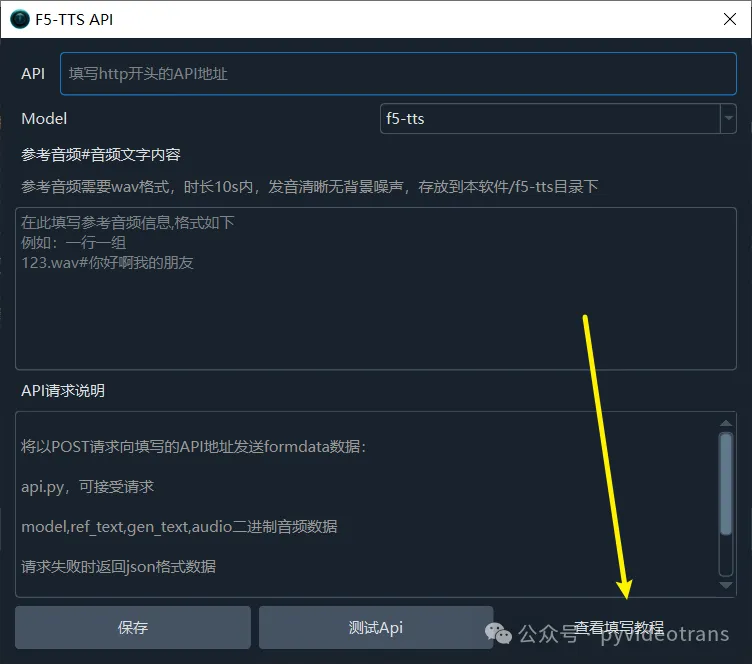
Alternatively, use paid online APIs such as 302.AI, ByteDance Volcengine Voice Synthesis, or OpenAI-TTS. 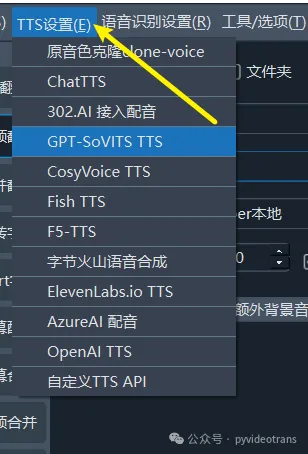
Fully Local Offline Translation Settings
Translation Channel Selection: Offline Translation OTT

Voiceover Channel Selection: F5-TTS / CosyVoice / FishTTS / GPT-SoVITS / clone-voice / ChatTTS are all local options that require additional deployment. Deployment tutorials can be found in the settings box.
Speech Recognition Selection: faster-whisper / openai-whisper / SenseVoice / STT are all local recognition options.
Most Stable Translation Settings:
For maximum stability, commercial-grade APIs are the best choice. Unless your machine has strong performance, you can also use local translation.
Translation channels to consider: 302.AI / OpenAI-ChatGPT / ByteDance Volcengine Large Model / Baidu Translate / Tencent Translate
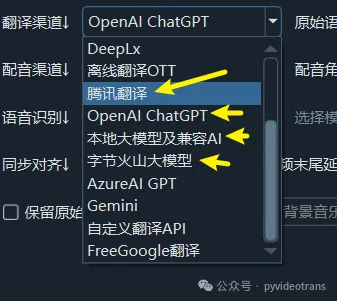
Voiceover channels to consider: ByteDance Volcengine Voice Synthesis / OpenAI-TTS / 302.AI 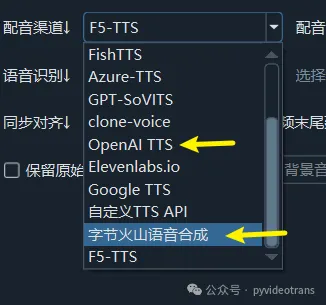
Speech Recognition channel to consider: ByteDance Volcengine Subtitle Generation 